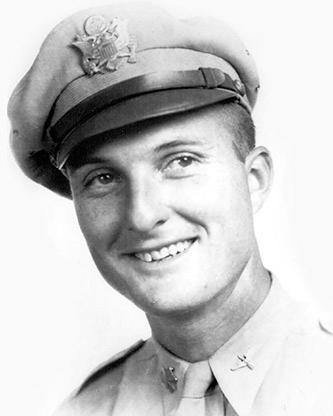Medal of Honor: Leon R. Vance Jr. – World War II, June 5, 1944
Clinging to life and nearly unconscious from blood loss, Vance tried to return to the sinking wreck to search for the missing crewman.
June 5, 2025


Leon Robert Vance Jr.
Lieutenant Colonel, U.S. Army Air Forces
Conflict: World War II
Unit: 489th Bombardment Group (Heavy), 8th Air Force
Date of Action: June 5, 1944
Location: Over the English Channel, following a mission to Pas-de-Calais, France
Summary of Action:
In the tense silence before D-Day, while the world’s attention prepared to turn toward Normandy, Lt. Col. Leon Vance flew a mission into darkness that would never make the front page—but may have changed the course of the war.
On June 5, 1944, Vance and the men of the 489th Bomb Group lifted off in B-24 Liberators for a deceptive strike on the Pas-de-Calais—part of a massive Allied ruse to convince the Germans the invasion would land far from its true target. Flying at high altitude in a radar-equipped “Mickey Ship,” Vance was directing the formation when the bombs from the lead aircraft failed to drop. Rather than abort, Vance made the call to circle back—an act of duty that would come at a terrible cost.
Enemy flak ripped into the bomber on the second run. Three engines were destroyed. Four crewmen were wounded. A live bomb hung half-loose in the bay. The pilot was killed instantly. And Vance himself suffered a devastating wound—his right foot crushed and pinned beneath the copilot’s seat.
But Vance didn’t break.
From a prone position, half-conscious and soaked in blood, he coordinated flight controls with the remaining pilot. He stabilized the aircraft. He plotted their route back to England. And when it came time to abandon ship, he faced a decision no man should have to make: one of his crew—he believed—was too injured to jump.
So Vance stayed.
With every other man clear, he made the impossible choice to ditch a B-24 into the sea, a feat no pilot had ever survived. The impact crushed the bomber and trapped him underwater. Only an explosion—violent and miraculous—hurled him to the surface. Dazed, barely alive, Vance tried to return to the sinking wreckage to search for the missing man before finally inflating his life vest.
He floated in the English Channel for nearly an hour before being rescued.
Leon Vance survived that night—but not the war. On July 26, 1944, while being flown back to the U.S. for medical treatment, his transport vanished without a trace over the Atlantic.
He was 29 years old.

Medal of Honor Citation:
*"For conspicuous gallantry and intrepidity at the risk of life above and beyond the call of duty, on 5 June 1944. On this date, Lt. Col. Vance was leading a heavy bombardment group on a mission against defended enemy coastal positions in France. As deputy group commander and flying in the leading aircraft, he acted as a pathfinder to the group.
Approaching the target, the bombardier’s interphone went out and he could not hear the order to bomb. Lt. Col. Vance elected to go around for another run, although heavy and accurate flak was encountered. As the aircraft came off the second run, a direct flak hit killed the pilot and severely injured Lt. Col. Vance in the right foot, completely severing it at the ankle. The co-pilot took over, but was confused. Lt. Col. Vance managed to calm him and directed the aircraft out of the flak area.
The aircraft was badly damaged, three engines were out, and six crew members were wounded. Believing one crewman to be too badly injured to jump, and being unable to leave himself due to his wound, Lt. Col. Vance ordered the other members to bail out, and then attempted to ditch the plane in the English Channel to save the wounded man. The ditching was successful, but Lt. Col. Vance was knocked unconscious and thrown clear of the aircraft. Regaining consciousness in the water, he began to search for the crewman before being rescued.
His courage, leadership, and selfless devotion to duty are in keeping with the highest traditions of the U.S. Army Air Forces and reflect great credit upon himself and the Armed Forces of the United States."*
